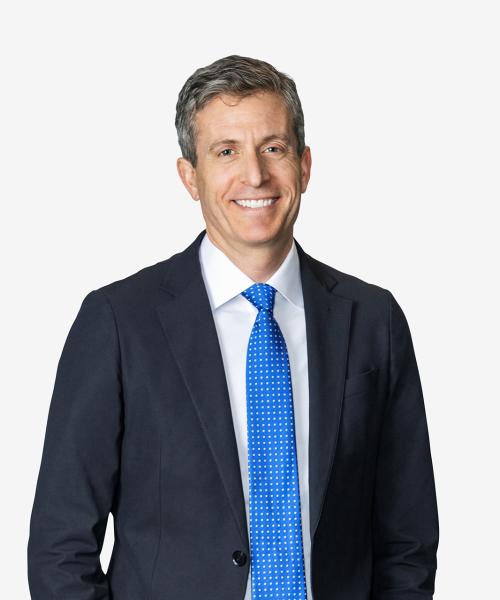Live Event Ticketing Markets See Heightened Scrutiny for Consumer Protection and Competition
A flurry of activity – a highly critical US government report, class-action complaints, and an upcoming Federal Trade Commission information-gathering “workshop” – point to likely changes coming to this market. We summarize in this article the confluence of recent scrutiny of this industry.
The US GAO identified a range of concerns related to anticompetitive activity in the online event ticketing market
The Government Accountability Office (GAO) publicly released in May 2018 a report that highlighted anticompetitive activity and potential consumer deception in the online event-ticketing marketplace, with a focus on “concert, theater, and major league sporting events for which there is a resale market.” This report was released in response to a bipartisan request from US Representatives Bill Pascrell (D-NJ), Jr., Frank Pallone, Jr. (D-NJ), Greg Walden (R-OR), and Fred Upton (R-MI). The report did not identify concerns aimed at specific companies, but identified two leaders that possess significant market share: Ticketmaster, was estimated to control more than 80 percent of the primary ticket market as of 2008; while StubHub controls 50 percent of the secondary market, with Ticketmaster’s US resale subsidiary holding the second largest market share.
The GAO’s report implicitly acknowledged that market competition had evolved since the Department of Justice issued a 2010 competitive impact statement related to the merger of Ticketmaster with the largest concert promoter, Live Nation. To obtain antitrust approval of that merger, Ticketmaster was required to license its principal ticketing software to the country’s second-largest concert promoter, sell a subsidiary that provides software allowing smaller venues to control their own ticketing operations, and agree not to retaliate against venues that use a competitor’s ticketing services or promoters.
In addition to noting the potential for market manipulation through monopoly power, the GAO’s report emphasized concerns about consumer deception and confusion in the marketplace:
Ticket fee transparency: Many ticketing companies in both the primary and secondary markets do not conspicuously display all fees associated with purchasing a ticket, and often such fees are mentioned only at the end of the purchase process. These fees can include service fees, processing fees, facility fees, and delivery fees.
Ticket availability: Consumers may not have access to tickets in the primary marketplace because presales and holds can limit the number of tickets available for general sales. Consumers are also competing with professional resellers that employ large staff and computer programs (bots) to quickly buy up tickets and/or tie up inventory to popular events.
Ticket prices: Resellers often add on fees in excess of the ticket’s face value.
Deceptive marketing: Some resellers employ marketing practices that deceive consumers. For example, a reseller might use a URL address similar to that of the original venue, thus tricking the consumer into believing they are purchasing the ticket at face value directly from the primary issuer.
Speculative tickets: A ticket broker may offer a ticket for sale without having one in hand, anticipating that they will be able to obtain one. This information is not always disclosed, leading consumers to believe they have a guaranteed ticket when there is a chance they never receive the ticket, or at least one similar in quality to that which they have purchased.
Fraudulent tickets: A con artist may sell a counterfeit ticket or offer duplicates of a print-at-home ticket. Often, these tickets are sold on the street right outside the venue or through online classified ads. Further, sophisticated credit card fraud exists where individuals buy tickets with stolen cards and resell them before the original credit card victim realizes their credit card has been compromised.
The GAO’s report also addressed potential means of countering these practices:
Prohibiting nontransferable tickets: This action would allow ticketholders to resell tickets they cannot use, but could also encourage scalpers to buy tickets en masse and resell them at a premium.
Price caps: Price caps would keep prices down for consumers by limiting ticket markups. Such action, however, would be difficult to enforce and could lead to underground sales resale activity.
Requiring upfront disclosure of ticket fees: This would increase transparency in the market but could present compliance challenges. It could still encourage underground sales that would violate these disclosures.
Requiring resellers to disclose face value: This would also increase transparency, but could be difficult to enforce and impose challenges for resellers in identifying a ticket’s face value.
Requiring disclosure of ticket availability: Again, this would increase transparency and could help manage consumer expectations, but could also help brokers identify tickets in short supply and hike prices accordingly. It could also harm events that might appear to be distressed and cause buyers to wait, or not buy at all, when ordinarily they would have purchased.
Class actions allege that Ticketmaster is engaging in unlawful business practices.
Three class action lawsuits were filed in September 2018, two pending in the Northern District of California and one in a Canadian court, against Ticketmaster and its parent company, Live Nation Entertainment. The complaints allege that Ticketmaster and Live Nation engaged in unlawful and unfair business acts and practices, and unjust enrichment. The suits assert that Ticketmaster manipulates the market to collect additional fees by secretly facilitating a ticket shortage on the primary market to encourage sales on the secondary market at a higher cost. This allows Ticketmaster to collect fees on both the initial sale and the resale.
The class actions largely mirror information reported by Canadian journalists that engaged in an undercover investigation. Reporters attended Ticket Summit, a Las Vegas ticketing and live-entertainment convention. They reported that Ticketmaster’s resale director held a session closed to the media to discuss Ticketmaster’s “Resale Partner Program” and TradeDesk, online resale management software where large quantities of tickets acquired by brokers (often via season ticket sales) can be easily managed to relist them, often at a premium. TradeDesk is not discussed on Ticketmaster’s website and an individual must send in a registration request to gain access. Some TradeDesk resellers allegedly have hundreds of separate accounts and use the system to move millions of tickets each year.
FTC will host a workshop in March 2019, which will provide an opportunity for stakeholders to discuss consumer protection issues relevant to the online event ticketing market.
The FTC, in an effort to learn more about the consumer protection and competition issues related to the online event-ticketing marketplace, is preparing an agenda for a public workshop scheduled for March 27, 2019. The FTC stated that the workshop is intended to bring together “a variety of stakeholders, including industry representatives, consumer advocates, trade associations, academics and government officials” to discuss these issues.”
The FTC reports that the workshop is intended to address:
- Primary market ticketing transparency and lack of ticket availability, and ticket bots and the Better Online Ticket Sales Act (BOTS Act).
- Resale ticket market disclosures of pricing, fees, and speculative tickets; and consumer confusion regarding search engine advertisements and websites of resellers versus official primary ticket sellers.
The FTC acknowledged that these markets can raise issues about “practices that limit ticket availability on the primary market, mislead consumers about ticket prices or availability, and confuse consumers about the entity from which they are purchasing.”
The FTC frequently holds public workshops on a regular basis as a means to gather information and assess whether action is warranted to protect against consumer deception or to preserve competition. In just the past year, for example, the FTC has held workshops on a wide variety of topics, including cryptocurrency scams and competition in the residential real estate brokerage market. Workshops like these typically are given some press coverage, particularly in industry publications, and often are attended by both business leaders and legal advisers to industry stakeholders. These workshops most often do not result in enforcement activity, but at a minimum signal heightened scrutiny and an opportunity to communicate directly with the FTC about the market.
Looking Ahead
The confluence of allegations this year about transparency and market manipulation signal that this market will remain under intense scrutiny. The FTC’s March 2019 workshop represents a forum for stakeholders to publicly advocate their positions, and interested parties should treat the workshop as an opportunity to build the FTC’s (and the public’s) knowledge and combat misperceptions.
Contacts
- Related Practices
-
Read Time
9Minutes

